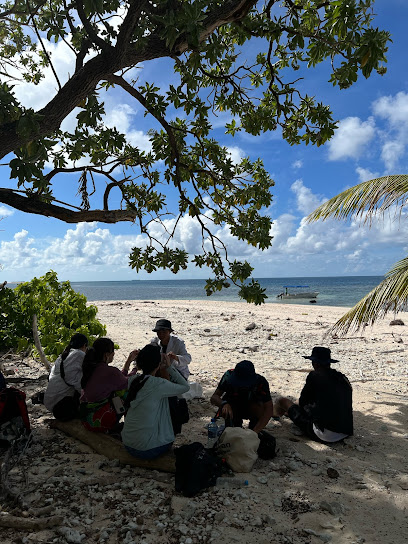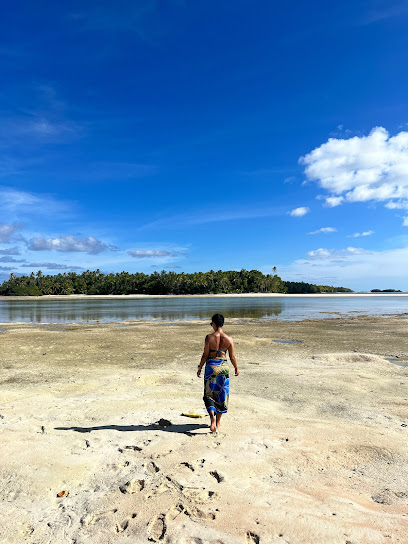
Vaiaku: The Heartbeat of Tuvalu
Vaiaku, the vibrant capital of Tuvalu, is located on the island of Fongafale. This small yet captivating city offers a blend of traditional Polynesian culture and modern-day simplicity. As you stroll through Vaiaku, you will experience the warmth and friendliness of the locals, who are deeply connected to their customs and traditions. The city is the administrative and commercial hub of Tuvalu, and it is home to the iconic Tuvalu Philatelic Bureau, which is a must-visit for stamp collectors. The nearby Vaiaku Lagi Hotel provides stunning views of the lagoon, where you can relax and soak in the serene atmosphere. The turquoise waters and pristine beaches offer a perfect escape from the hustle and bustle of daily life. Exploring the local markets will give you a taste of Tuvaluan cuisine, with fresh seafood being a highlight. Don't miss the traditional dance performances and cultural shows that are often held in the town square, showcasing the rich heritage of this Pacific paradise. Vaiaku may be small, but it leaves a lasting impression with its unique charm and welcoming spirit.
Local tips in Vaiaku
- Visit the Tuvalu Philatelic Bureau for unique stamps and souvenirs.
- Stay at Vaiaku Lagi Hotel for the best lagoon views and easy access to the city.
- Experience local cuisine at the markets, with an emphasis on fresh seafood.
- Attend traditional dance performances in the town square for a glimpse into Tuvaluan culture.
- Bring cash as there are limited ATMs and credit card facilities might not be widely available.
Vaiaku: The Heartbeat of Tuvalu
Vaiaku, the vibrant capital of Tuvalu, is located on the island of Fongafale. This small yet captivating city offers a blend of traditional Polynesian culture and modern-day simplicity. As you stroll through Vaiaku, you will experience the warmth and friendliness of the locals, who are deeply connected to their customs and traditions. The city is the administrative and commercial hub of Tuvalu, and it is home to the iconic Tuvalu Philatelic Bureau, which is a must-visit for stamp collectors. The nearby Vaiaku Lagi Hotel provides stunning views of the lagoon, where you can relax and soak in the serene atmosphere. The turquoise waters and pristine beaches offer a perfect escape from the hustle and bustle of daily life. Exploring the local markets will give you a taste of Tuvaluan cuisine, with fresh seafood being a highlight. Don't miss the traditional dance performances and cultural shows that are often held in the town square, showcasing the rich heritage of this Pacific paradise. Vaiaku may be small, but it leaves a lasting impression with its unique charm and welcoming spirit.
When is the best time to go to Vaiaku?
Iconic landmarks you can’t miss
Funafuti International Airport
Explore the gateway to Tuvalu's pristine beaches and vibrant culture at Funafuti International Airport, your starting point for an unforgettable Pacific adventure.
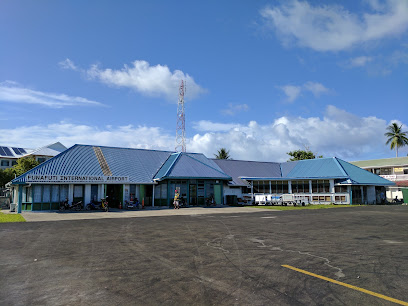
Funafuti
Explore the tranquil beauty of Funafuti Atoll, a hidden gem in Tuvalu's Pacific paradise with stunning landscapes, rich culture, and welcoming locals.
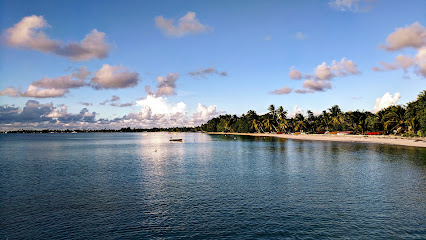
Funafuti Lagoon Hotel
Discover the natural beauty and cultural richness of Tuvalu at Funafuti Lagoon Hotel, your gateway to paradise in the Pacific.

Afelita’s Island Resort
Discover the enchanting beauty of Tuvalu at Afelita’s Island Resort, a tranquil hotel offering stunning views, warm hospitality, and a taste of local culture.
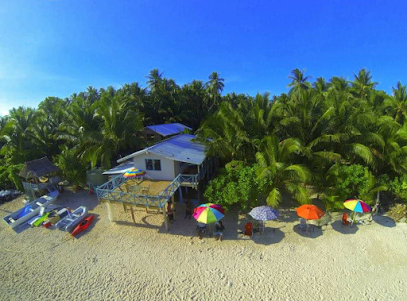
Filamona Lodge
Experience the serene beauty of Tuvalu at Filamona Lodge, where local hospitality meets breathtaking island landscapes.

Esfam Lodge
Discover the beauty of Funafuti at Esfam Lodge - a tranquil retreat in Tuvalu's tropical paradise with warm hospitality and comfortable accommodations.

Kingdom Hall of Jehovah's Witnesses Tuvalu
Discover the spiritual heart of Tuvalu at the Kingdom Hall of Jehovah's Witnesses, where faith and community come together in harmony.
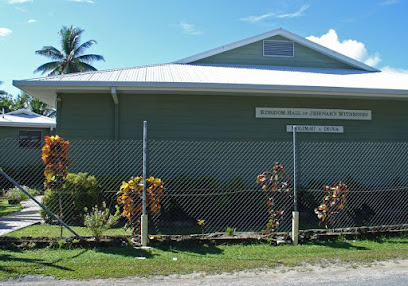
L's Lodge
Experience the charm of Tuvalu at L's Lodge, your idyllic retreat for relaxation and adventure amidst stunning natural beauty.

Tuvalu Sports Ground
Experience the vibrant spirit of Tuvalu at the Tuvalu Sports Ground, where sports and culture come alive in a community celebration.
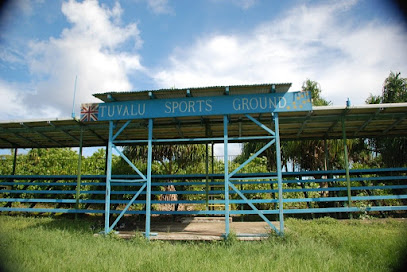
National Bank of Tuvalu
Discover the National Bank of Tuvalu, where finance meets the enchanting beauty of the Pacific Islands.
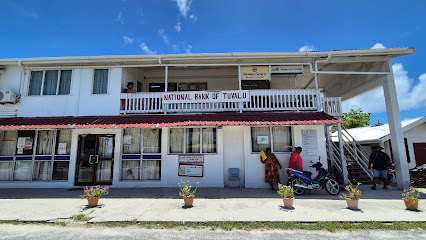
Funafala
Escape to Funafala Island, a serene paradise in Tuvalu with pristine beaches, vibrant marine life, and a rich cultural experience waiting to be discovered.
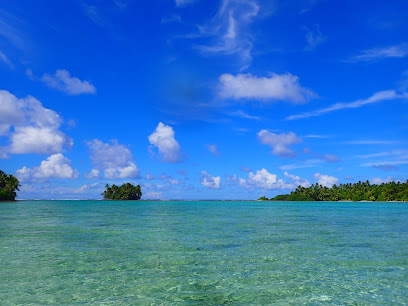
Falauniufatu Beach
Discover the pristine beauty of Falauniufatu Beach in Tuvalu, where soft sands meet crystal-clear waters for a perfect tropical escape.
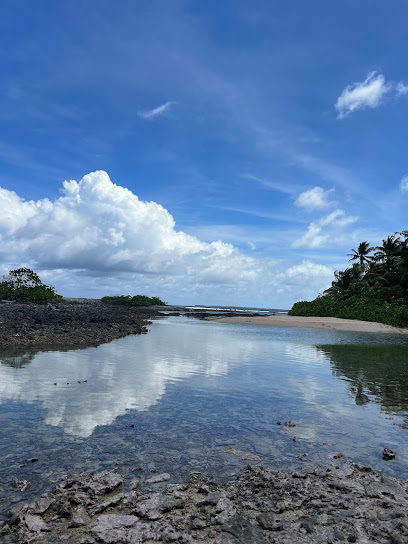
Tepuka
Experience the unspoiled beauty of Tepuka Island in Tuvalu, a hidden paradise perfect for relaxation, adventure, and cultural immersion.
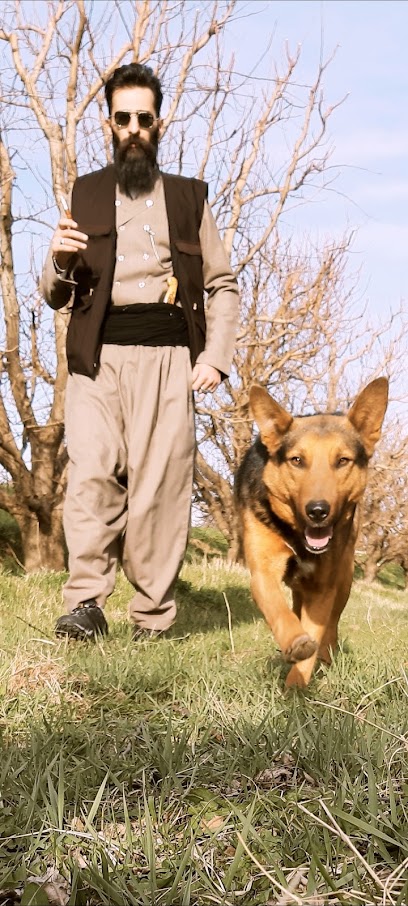
Tuvalu Women’s Handicraft Centre
Discover the vibrant culture of Tuvalu through the exquisite handmade crafts at the Women's Handicraft Centre, a unique ethnographic experience.
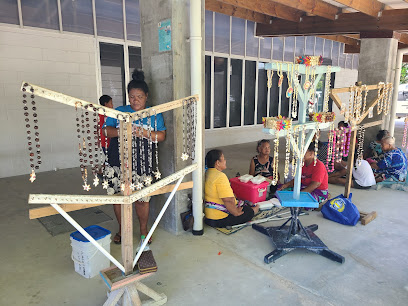
Tefonufala Beach
Discover the serene beauty of Tefonufala Beach, a hidden paradise in Tuvalu perfect for relaxation, snorkeling, and enjoying breathtaking sunsets.
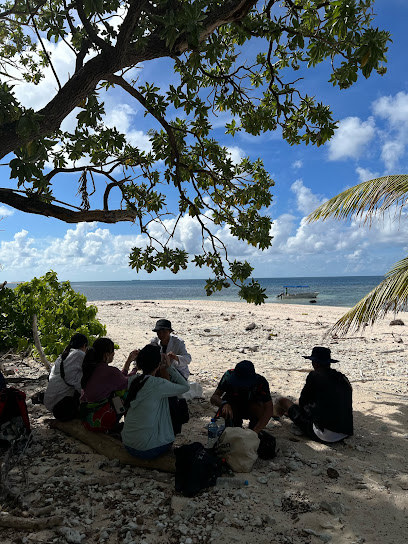
Unmissable attractions to see
Essential places to dine
Funafuti Lagoon Hotel
Discover tranquility at Funafuti Lagoon Hotel – your gateway to Tuvalu's breathtaking landscapes and vibrant marine life.

Blue Ocean Restaurant
Experience authentic Tuvaluan cuisine at Blue Ocean Restaurant in Vaiaku – where fresh seafood meets stunning ocean views.
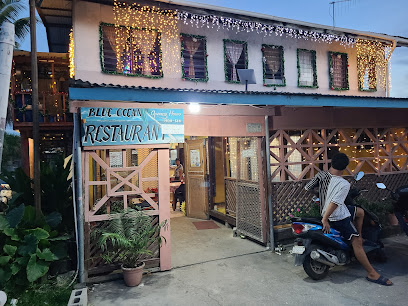
Island Supermarket
Discover local flavors at Island Supermarket in Vaiaku, Tuvalu – where every aisle tells a story of island culture and cuisine.
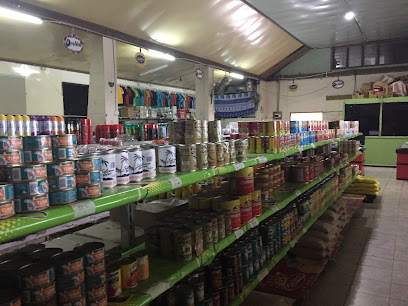
Fripay BBQ
Discover the flavors of Tuvalu at Fripay BBQ, where delicious grilled dishes meet warm island hospitality in Vaiaku.
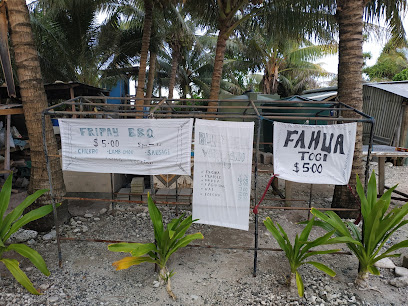
Chez Imogan
Experience the vibrant culture and tropical delights at Chez Imogan, your go-to bar in Tuvalu for relaxation and fun.
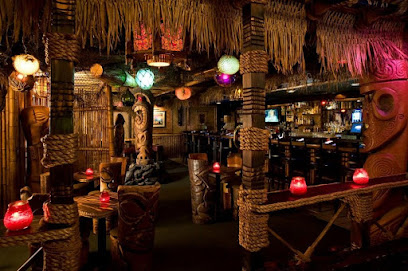
Sue's Kitchen
Experience authentic Tuvaluan flavors at Sue's Kitchen in Vaiaku - where local cuisine meets cozy hospitality.
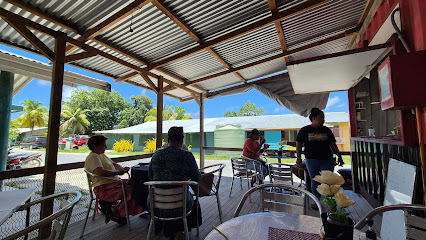
Matagigali Bar
Discover Matagigali Bar - A vibrant gathering spot in Vaiaku where locals meet tourists for unforgettable nights filled with laughter and great drinks.
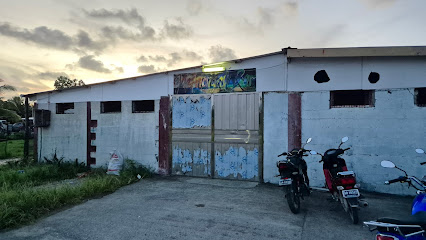
Halavai Restaurant
Experience authentic Tuvaluan flavors at Halavai Restaurant in Vaiaku – where local cuisine meets warm hospitality.
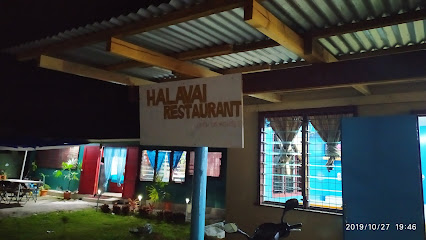
Pizzeria da casetti
Discover authentic Italian flavors at Pizzeria da Casetti in Vaitupu – where each slice is a taste of paradise.

Tuvalu Women’s Handicraft Centre
Explore authentic Tuvaluan craftsmanship at the Women’s Handicraft Centre—home to exquisite handmade souvenirs reflecting rich cultural heritage.
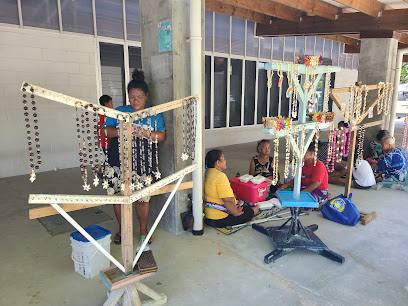
Nangs
Discover authentic Tuvaluan flavors at Nangs in Vaiaku - where fresh ingredients meet traditional cooking.
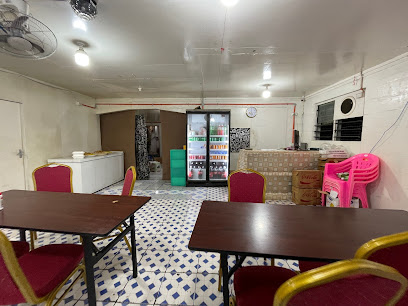
Warmasiri lodge
Experience serene hospitality at Warmasiri Lodge in Vaiaku, where natural beauty meets comfort in Tuvalu's hidden paradise.

Afelita
Experience authentic Tuvaluan hospitality at Afelita Bed & Breakfast – your perfect getaway in paradise.
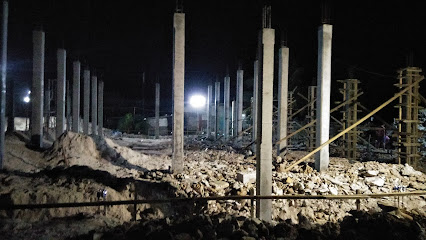
Dillian Restaurant & Bar
Discover exceptional flavors at Dillian Restaurant & Bar in Vaiaku, Tuvalu – where local cuisine meets delightful ambiance.
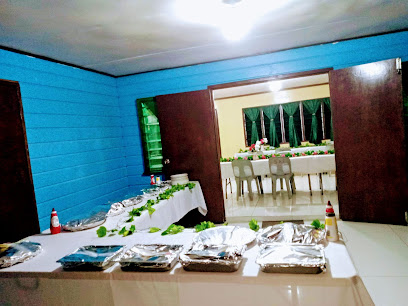
Sefatu Store
Explore Vaiaku with ease at Sefatu Store – your convenient stop for snacks and local treasures in beautiful Tuvalu.
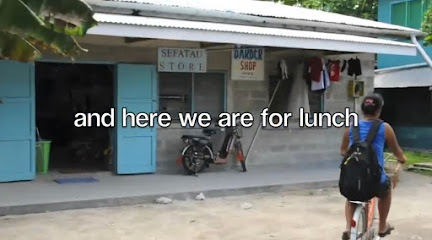
Markets, malls and hidden boutiques
Funafuti International Airport
Experience the charm of Funafuti International Airport, the welcoming gateway to the stunning islands of Tuvalu, where adventure awaits.
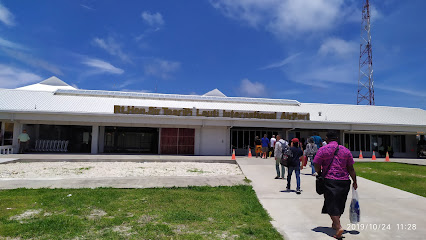
Funafuti Lagoon Hotel
Unwind in the serene beauty of Funafuti Lagoon Hotel, your gateway to the tranquil paradise of Tuvalu's stunning lagoon and vibrant culture.

Island Supermarket
Explore local flavors and products at Island Supermarket in Vaiaku, Tuvalu, the heart of everyday shopping experience on this beautiful island.
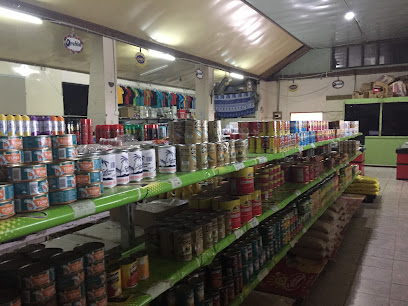
Fripay BBQ
Discover the authentic taste of Tuvalu at Fripay BBQ, where every bite tells a story of local culinary tradition.
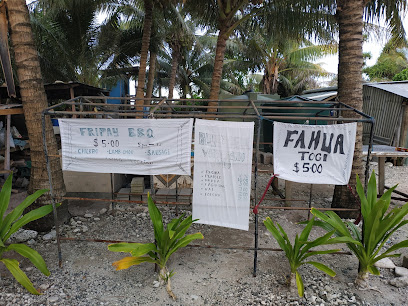
Filamona Lodge
Escape to Filamona Lodge in Funafuti, Tuvalu, where serenity meets vibrant island culture amidst stunning ocean views.

Jimmy Store
Discover local groceries and unique island souvenirs at Jimmy Store, the largest supermarket in Vaiaku, Tuvalu.
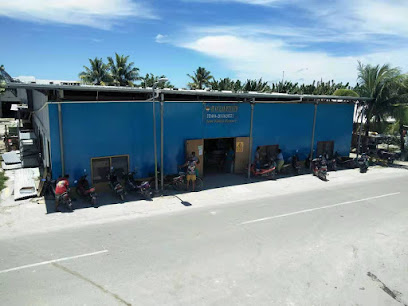
Tuvalu Telecom
Stay connected while exploring the beautiful islands of Tuvalu with Tuvalu Telecom, your reliable telecommunications provider.
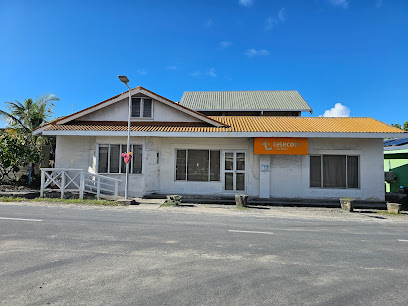
The Twins Auto Motor Repair
Explore Tuvalu with confidence by ensuring your scooter is in top shape at The Twins Auto Motor Repair - your trusted partner for motor scooter maintenance.
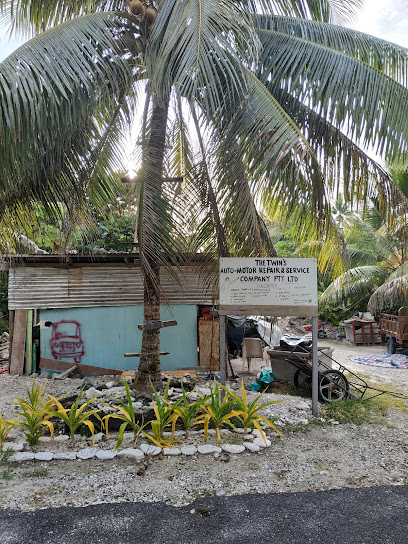
LJ Enterprise Store
Explore LJ Enterprise Store in Vaiaku for unique home goods and a touch of Tuvaluan culture amidst your travels.
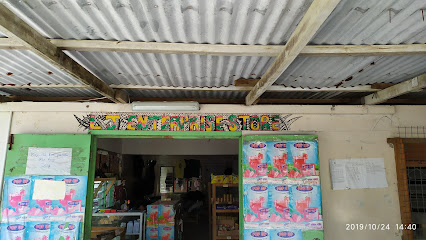
Tuvalu Women’s Handicraft Centre
Explore the vibrant culture of Tuvalu at the Women’s Handicraft Centre, where traditional artistry meets community spirit in beautiful hand-made creations.
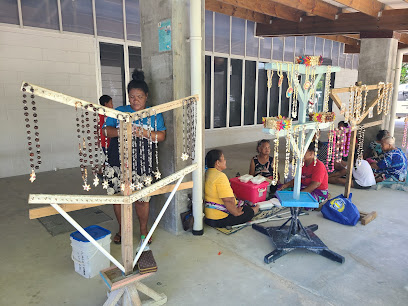
Tuvellice Beach
Discover the tranquility and natural beauty of Tuvellice Beach, a hidden paradise in Tuvalu's stunning landscape.

Tokotu Beach Convenience Shop
Explore Tokotu Beach Convenience Shop in Vaiaku, your go-to spot for local snacks, drinks, and souvenirs while enjoying the beauty of Tuvalu.
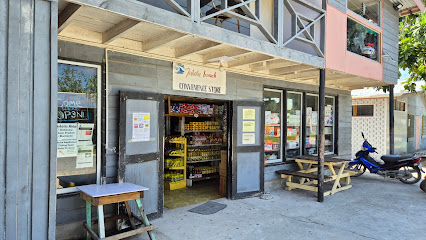
Kavatoetoe Mini Mart
Explore Kavatoetoe Mini Mart in Vaiaku for unique home goods and a taste of Tuvaluan culture, perfect for all your shopping needs.
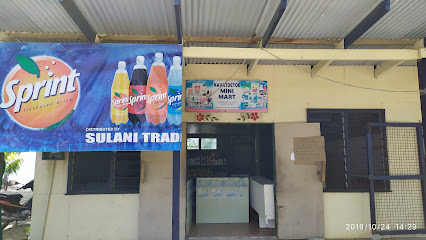
A Convenience in Funafuti
Explore the heart of Funafuti at A Convenience in Funafuti, your go-to grocery store for local snacks and essentials on this stunning island.
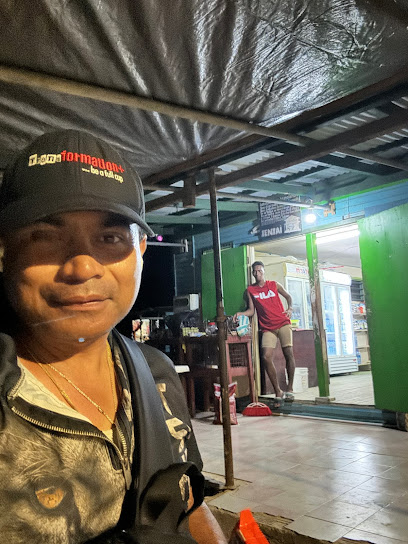
Sefatu Store
Experience local convenience at Sefatu Store, your go-to spot in Vaiaku for snacks, refreshments, and essential supplies while exploring Tuvalu.
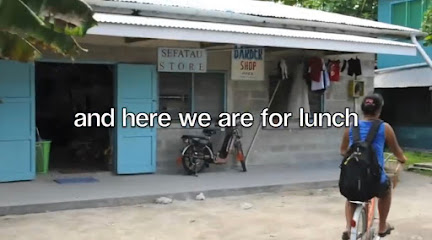
Essential bars & hidden hideouts
Funafuti Lagoon Hotel
Discover the tranquil beauty of Funafuti Lagoon Hotel in Tuvalu, where stunning ocean views meet rich cultural experiences.

Blue Ocean Restaurant
Discover the flavors of Tuvalu at Blue Ocean Restaurant, where local ingredients meet international cuisine in a stunning oceanfront setting.
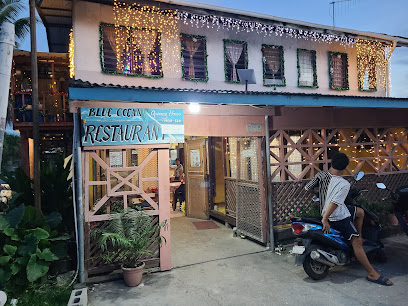
Island Supermarket
Explore the vibrant flavors of Tuvalu at Island Supermarket, your local hub for fresh produce and unique island snacks.
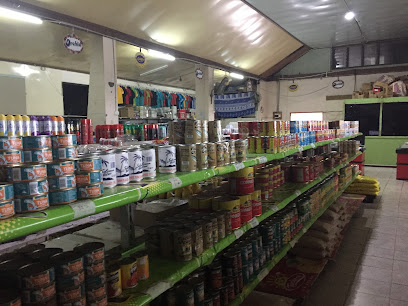
Fripay BBQ
Explore the authentic flavors of Tuvalu at Fripay BBQ, where traditional barbecue meets a vibrant atmosphere for an unforgettable dining experience.
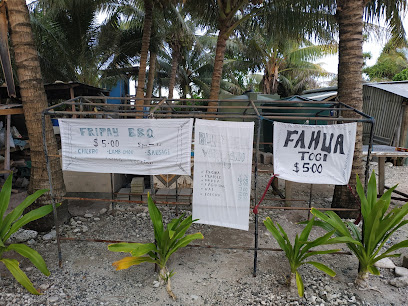
Chez Imogan
Discover the vibrant ambiance and local flavors at Chez Imogan, your ultimate bar experience in Amatuku, Tuvalu.
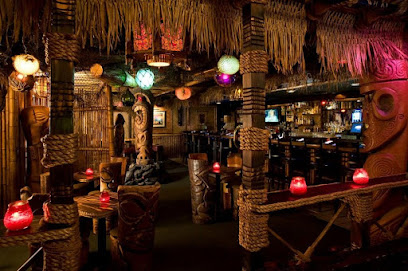
Matagigali Bar
Experience the vibrant nightlife at Matagigali Bar in Vaiaku, Tuvalu—where locals and travelers unite for unforgettable evenings.
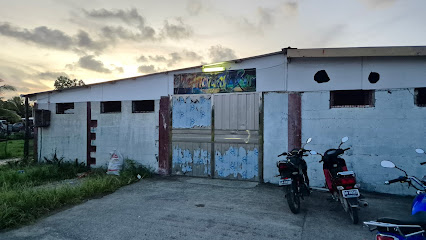
Tokotu Beach Convenience Shop
Visit Tokotu Beach Convenience Shop in Vaiaku for local snacks, beach essentials, and a taste of Tuvalu's charm, all in one convenient location.
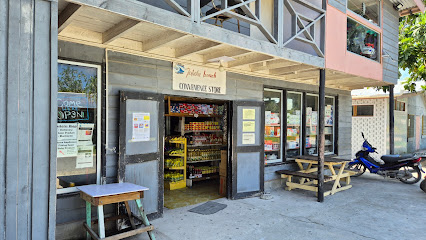
Dillian Restaurant & Bar
Experience the flavors of Tuvalu at Dillian Restaurant & Bar, a culinary haven in Vaiaku with fresh local ingredients and a warm atmosphere.
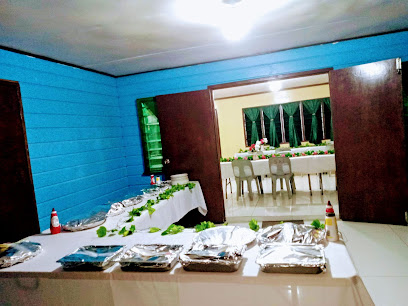
Sefatu Store
Discover the charm of Sefatu Store in Vaiaku, Tuvalu - your essential stop for snacks, drinks, and local goods.
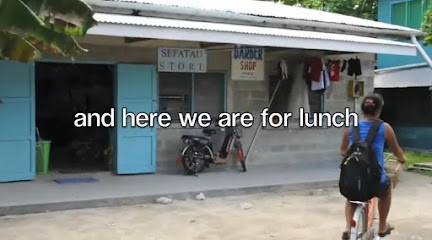
Local Phrases
-
- HelloTalofa
[Tah-loh-fah] - GoodbyeTofa
[Toh-fah] - YesIo
[Ee-oh] - NoLeai
[Leh-eye] - Please/You're welcomeFakafetai
[Fah-kah-feh-tai] - Thank youFakafetai
[Fah-kah-feh-tai] - Excuse me/SorryFa'amalie
[Fah-ah-mah-lee-eh] - How are you?Fefe haka?
[Feh-feh hah-kah] - Fine. And you?Lelei. Ia oe?
[Leh-leh. Ee-ah oh-eh] - Do you speak English?Fakapalagi haka?
[Fah-kah-pah-lah-gee hah-kah] - I don't understandE le mafai ona ou te fiafia
[Eh leh mah-fai oh-nah oh-eh teh fee-ah-fee-ah]
- HelloTalofa
-
- I'd like to see the menu, pleaseE fia fesoasoani ia te fa'asalalau
[Eh fee-ah feh-soh-ah-soh-ah-nee ee-ah teh fah-ah-sah-lah-lah-oo] - I don't eat meatE le ou ai mea
[Eh leh oh-oo eye meh-ah] - Cheers!Manuia!
[Mah-noo-ee-ah] - I would like to pay, pleaseE fia ona ou tu'u, fesoasoani
[Eh fee-ah oh-nah oh-oo too-oo, feh-soh-ah-soh-ah-nee]
- I'd like to see the menu, pleaseE fia fesoasoani ia te fa'asalalau
-
- Help!Fesoasoani!
[Feh-soh-ah-soh-ah-nee] - Go away!Alu atu!
[Ah-loo ah-too] - Call the Police!Fa'afeso'ota'i i leoleo!
[Fah-ah-feh-soh-oh-tah-ee ee leh-oh-leh-oh] - Call a doctor!Fa'afeso'ota'i i le foma'i!
[Fah-ah-feh-soh-oh-tah-ee ee leh foh-mah-ee] - I'm lostNa ou te fiafia
[Nah oh-oo teh fee-ah-fee-ah] - I'm illNa ou te mate
[Nah oh-oo teh mah-teh]
- Help!Fesoasoani!
-
- I'd like to buy...E fia ona ou fesoasoani...
[Eh fee-ah oh-nah oh-oo feh-soh-ah-soh-ah-nee] - I'm just lookingE te i ai
[Eh teh ee eye] - How much is it?E fia e le tele?
[Eh fee-ah eh leh teh-leh] - That's too expensiveO lea e lelei tele
[Oh leh-ah eh leh-leh teh-leh] - Can you lower the price?E mafai ona ou fa'amalie le totogi?
[Eh mah-fai oh-nah oh-oo fah-ah-mah-lee leh toh-toh-gee]
- I'd like to buy...E fia ona ou fesoasoani...
-
- What time is it?O le a le taimi?
[Oh leh-ah leh tah-ee-mee] - It's one o'clockE tasi i le taimi
[Eh tah-see ee leh tah-ee-mee] - Half past (10)I le tausaga e sefulu
[Ee leh tah-oo-sah-ngah eh seh-foo-loo] - MorningTaeao
[Tah-eh-ah-oh] - AfternoonAsoaulu
[Ah-soh-ah-oo-loo] - EveningAfiafi
[Ah-fee-ah-fee] - YesterdayAnanafi
[Ah-nah-nah-fee] - TodayAso nei
[Ah-soh neh-ee] - TomorrowAso taeao
[Ah-soh tah-eh-ah-oh] - 1Tasi
[Tah-see] - 2Lua
[Loo-ah] - 3Tolu
[Toh-loo] - 4Fa
[Fah] - 5Lima
[Lee-mah] - 6Ono
[Oh-no] - 7Fitu
[Fee-too] - 8Valu
[Vah-loo] - 9Iva
[Ee-vah] - 10Sefulu
[Seh-foo-loo]
- What time is it?O le a le taimi?
-
- Where's a/the...?O fea le...?
[Oh feh-ah leh] - What's the address?O fea le fa'ailoa?
[Oh feh-ah leh fah-ah-ee-loh-ah] - Can you show me (on the map)?E mafai ona outou fa'amalosi mai (i le mapa)?
[Eh mah-fai oh-nah oh-oo-toh fah-ah-mah-loh-see mah-ee ee leh mah-pah] - When's the next (bus)?O le a lea le tau (autalavou)?
[Oh leh-ah leh-ah leh tah-oo ah-oo-tah-lah-voh-oo] - A ticket (to ....)Se tiketi (i le ....)
[Seh tee-keh-tee ee leh]
- Where's a/the...?O fea le...?
History of Vaiaku
-
Vaiaku, located on the islet of Fongafale in the Funafuti atoll, is part of Tuvalu, a Polynesian island nation. The history of Vaiaku dates back to the early Polynesian settlers who navigated the Pacific Ocean using traditional voyaging techniques. These early settlers established the initial communities that would eventually grow into the village of Vaiaku.
-
In the late 19th century, Tuvalu, including Vaiaku, came under British influence. It was during this period that the islands were part of the British protectorate known as the Gilbert and Ellice Islands Colony. The colonial era brought changes in governance and infrastructure, though Tuvalu, including Vaiaku, maintained much of its traditional lifestyle and customs.
-
During World War II, the Funafuti atoll, where Vaiaku is located, was used as a base by Allied forces. The construction of an airfield and other military facilities brought significant changes to the area. This period saw an increase in interaction with foreign military personnel and introduced new technologies and goods to the local population.
-
After World War II, Tuvalu continued to be administered as part of the Gilbert and Ellice Islands Colony until the two groups separated in 1975. Vaiaku, the largest village in Funafuti, played a central role in the administrative changes that followed. The period saw efforts towards greater self-governance and the establishment of local institutions.
-
Tuvalu gained independence from Britain on October 1, 1978. Vaiaku, as part of the capital district of Funafuti, became central to the new nation's political life. The independence period was marked by the establishment of government buildings and facilities in Vaiaku, including the Parliament House and the offices of various ministries.
-
Today, Vaiaku is the administrative and political heart of Tuvalu. It hosts the main government buildings, including the residence of the Governor-General, the Prime Minister's office, and other key institutions. The village serves as a hub for the nation's political activities and is a focal point for visitors and residents alike.
-
Vaiaku remains a vibrant center of Tuvaluan culture. Traditional practices, such as dance, music, and community gatherings, are an integral part of life in Vaiaku. The village's cultural sites and community halls are often used for important national ceremonies and celebrations, reflecting the rich heritage of Tuvalu.
-
As with the rest of Tuvalu, Vaiaku faces significant environmental challenges, particularly from climate change and rising sea levels. Efforts are ongoing to address these issues through local and international cooperation, with initiatives aimed at protecting the village and its inhabitants from the impacts of climate change.
Vaiaku Essentials
-
Vaiaku is located on the island of Funafuti, which is the capital of Tuvalu. The primary way to reach Vaiaku is by air via Funafuti International Airport (FUN). Fiji Airways operates flights from Suva, Fiji, to Funafuti twice a week. It is recommended to book flights well in advance due to limited availability. Once you arrive at the airport, Vaiaku is just a short drive away, and taxis are readily available.
-
Vaiaku and Funafuti are small enough to explore on foot or by bicycle, which is a popular mode of transport among locals. Bicycles can often be rented from local guesthouses or shops. Taxis are also available for longer trips or if you prefer not to walk. There is no public transportation system, but hitchhiking is generally safe and commonly practiced.
-
The official currency in Tuvalu is the Australian Dollar (AUD). Credit cards are not widely accepted, so it is advisable to carry cash. There is one ATM on Funafuti, but it can occasionally run out of money, so plan accordingly. Traveler's checks can be cashed at the National Bank of Tuvalu located in Vaiaku.
-
Vaiaku is generally safe for tourists, with very low crime rates. However, it is always wise to take standard precautions such as not leaving valuables unattended and avoiding poorly lit areas at night. There are no specific high-crime areas targeting tourists. The local community is friendly and welcoming.
-
In case of emergency, you can dial the local emergency number 911. The Princess Margaret Hospital is located in Vaiaku and provides medical services. It is advisable to have travel insurance that covers medical emergencies and evacuations. For minor health issues, there is a pharmacy in Vaiaku where you can purchase over-the-counter medications.
-
Fashion: Do dress modestly, especially when visiting villages or attending local events. Avoid wearing revealing clothing. Religion: Do respect local customs and traditions. Public Transport: There is no formal public transport, but if hitchhiking, always be respectful to drivers. Greetings: Do greet people with a friendly 'Talofa!' and a smile. Eating & Drinking: Do try local dishes and accept food offerings graciously. Don’t refuse hospitality, as it is considered impolite.
-
To experience Vaiaku like a local, spend time at the local maneapa (meeting house) where community events often take place. Engage with locals; they are usually very friendly and eager to share their culture. Visit the Vaiaku Lagi Hotel for a meal and chat with the staff to get insider tips. Don’t miss out on a sunset walk along the Funafuti lagoon, which offers breathtaking views.
Trending Landmark in Vaiaku
Nearby Cities to Vaiaku
-
Things To Do in Funafuti
-
Things To Do in Fongafale
-
Things To Do in Nukufetau
-
Things To Do in Rakiraki
-
Things To Do in Levuka
-
Things To Do in Lautoka
-
Things To Do in Savusavu
-
Things To Do in Labasa
-
Things To Do in Ba
-
Things To Do in Falealupo
-
Things To Do in Nadi
-
Things To Do in Asau
-
Things To Do in Nausori
-
Things To Do in Manase
-
Things To Do in Fagamalo




